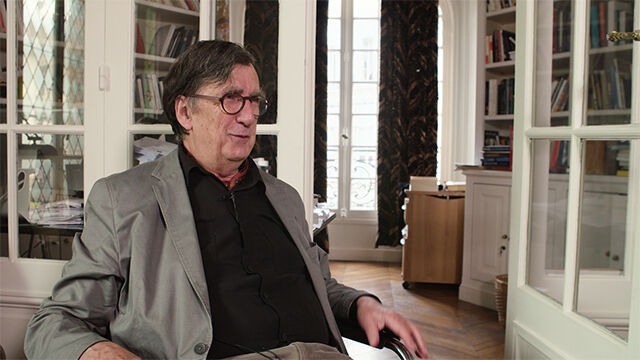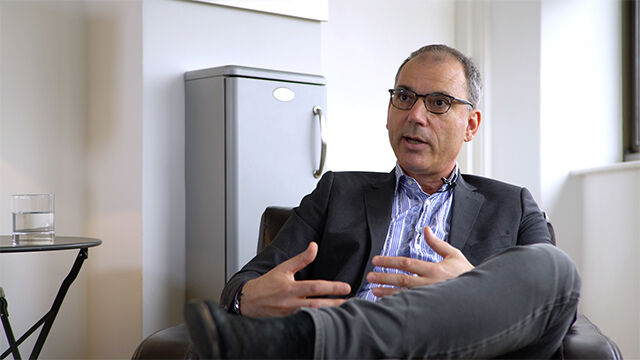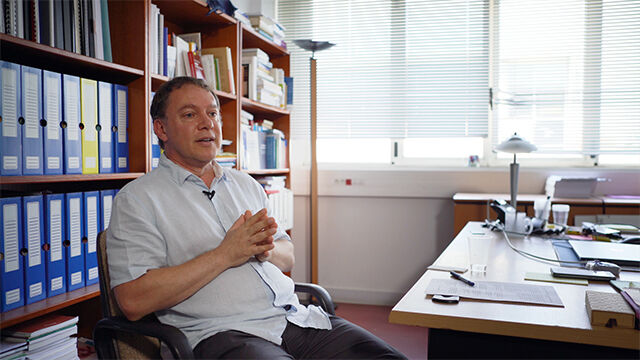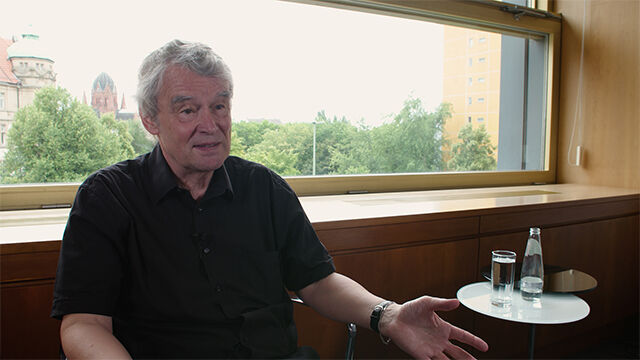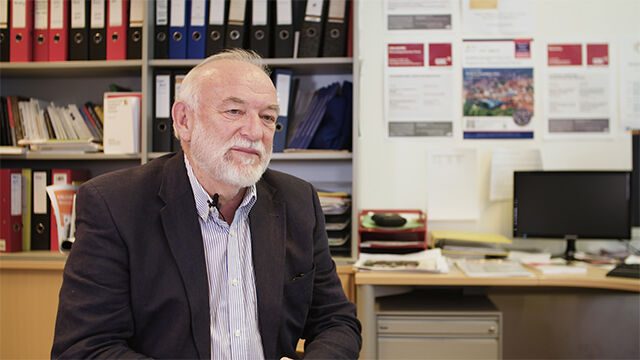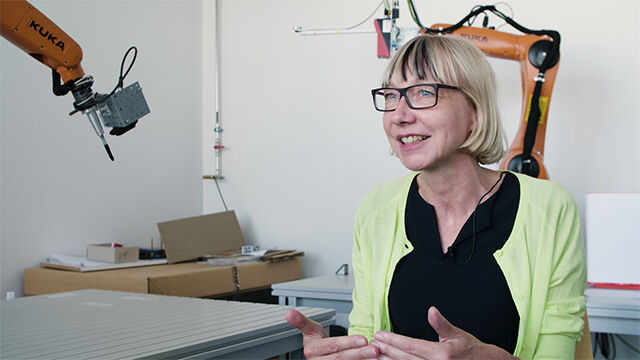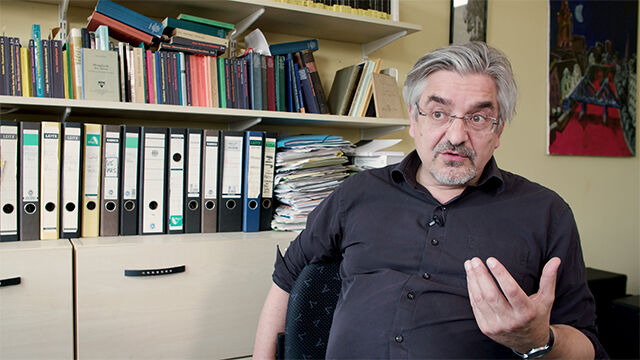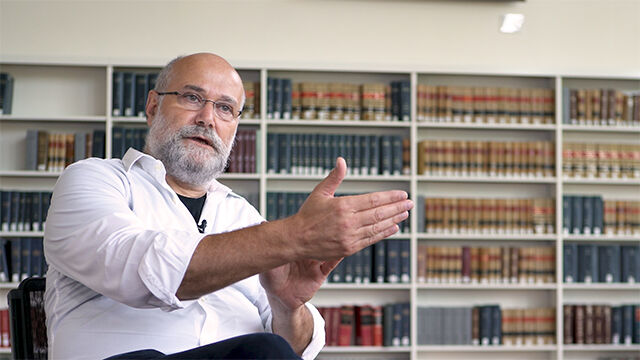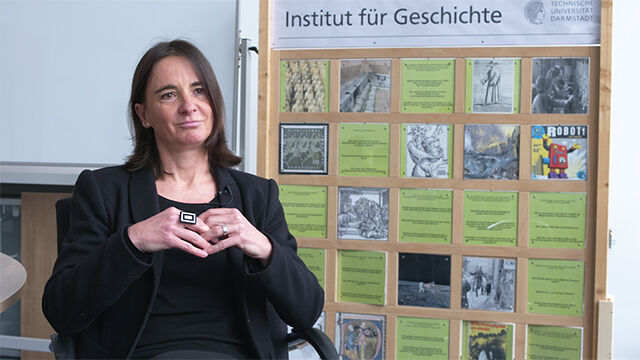Video interviews: Society – Technology – People
Video interviews with theoreticians conducted by the Federal Institute for Vocational Education and Training (BIBB) with a view to explaining the causes, drivers and social and economic effects of technological progress
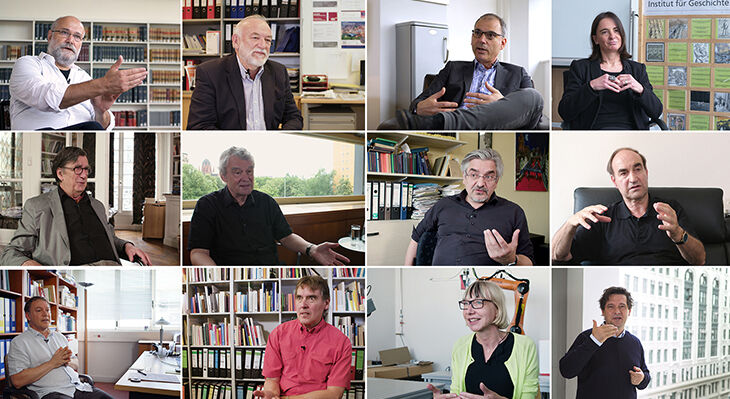
The way in which we think about and discuss societal changes today is determined by technological advancement. How will we live, work and communicate in a digital age? The following fundamental questions arise in this regard. How does technical and technological progress function in the first place? What are the underlying drivers of this? Which stakeholders are involved? Which effect mechanisms are the consequences bringing about? Within the “4.0” context, the issue which seems relevant is: Do the current technical possibilities and technological development offer any particular opportunities, and to which ends?
In order to discuss these questions, a project financed by the Federal Ministry of Education and Research (BMBF) spoke with twelve leading academic researchers from France, the United Kingdom, Austria, the USA and Germany. The interviews took place in 2018 and 2019 and resulted in videos that are each around 25 minutes in length. The focus is on theoretical explanatory approaches which are prominently represented. These now form an accessible interdisciplinary database. Our aims are to document pioneering contemporary thinking and to encourage further networking on the status of mankind’s technical and technological development and on the possible direction of future travel.
Bruno Latour, Paris, places the emphasis on creating a reference framework for the value judgements which dictate our actions. Going forwards, what attitude do we seek to adopt towards the “carbon-based technology” of the past? As a “hyper modern” society struggles to come to terms with its future, Latour argues from the perspective of the “stakeholder network theory” which he himself has developed. Bruno Latour is one of the interviewees who perceives an extremely close link between humans and technical artefacts.
David Bates, Berkeley, analyses this link as an indissoluble and symbiotic connection between people and technology within our cultural development. He equally sees such a tie as a necessary basis for societal advancement. David Bates says: “There is a danger in not evolving, and there is a danger in evolving.” As far as he is concerned, “interruption, error and slippage” are the fundamental drivers of technological innovations. He deals in detail with artificial intelligence and its development and also looks at automation from a cultural theory point of view.
Uwe Schimank, Bremen, uses his video to present a systematic analysis from three theoretical perspectives. He juxtaposes capitalism, social differentiation and the inequality theory in order to underline their respective particular characteristics. Although his cultural theory explanation of the correlations between these points of view does not include a symbiotic interwovenness between man and machine, it is still able to display the possible cultural effects of technological developments. This enables him to describe a different kind of polarisation in the form of the outcome of technological progress. Uwe Schimank carries out research into the sociological theory of modern society.
Richard Münch, Bamberg, outlines the genesis of the thematic area of technological and societal development within the field of sociology. The paramount issue for him is whether the structures of the German academic system foster innovation or not. Richard Münch’s research work focuses on the global division of labour, education and academic capitalism.
Frédéric Lebaron, Paris, expands the ideas on the origins and use of technology propounded by the French sociologist and social philosopher Pierre Bourdieu. He explains why we are running the risk of developing fewer fundamental technological innovations in future and what could help to prevent this scenario. Frédéric Lebaron is a sociologist who specialises in the work of Bourdieu and in data analysis. He has developed Bourdieu’s theory further.
Hartmut Hirsch-Kreinsen, Dortmund, concentrates on providing an overview of more recent approaches towards technological research and technology impact assessment. He stresses the scientification of technological development and expresses the view that, to a certain extent, this creates “societal structural conditions for the purpose of institutionalisation processes”. Hartmut Hirsch-Kreinsen is an employment and industrial sociologist who is interested in the digitalisation of industrial work.
Heinz D. Kurz, Graz, is an adherent of the approach adopted by Joseph Schumpeter, Austria’s most prominent political economist in the first half of the 20th century. However, he also points out the specific opportunities and risks which digitalisation brings. He explains the link between the precarity of the past and current forms of digitalisation. Heinz D. Kurz researches the history of economic thought. He has contributed to the further development of economic theory in his capacity as Head of the Graz Schumpeter Centre.
Sabine Pfeiffer, Nuremberg, addresses the objectives of technological developments. She too sees a close cultural link between humans and technology, which has been established via action and work. One of the issues she sheds light on is whether we have currently found the right answer to the question as to which tasks should be performed by people and which work should be done by machines. The areas of research pursued by Sabine Pfeiffer include the relationship between humans and technology with regard to digitalisation and labour capacity.
Joachim Renn, Münster, underlines the path dependency of systems which are dominated by economic structures. He believes that the nature of innovation depends on the point along the pathway at which we find ourselves. The interview reveals how crises and innovations are interlinked within this context. Joachim Renn is a sociologist who looks at translations from a system theory point of view.
Trebor Scholz, New York, describes an alternative approach in the digital economy which has been thoroughly and robustly thought out. His answers elucidate whether a cooperative is superior to a monopolist and hierarchical corporate structure. Trebor Scholz is a sociologist and academic research activist who advocates the use of platforms.
Yochai Benkler, Harvard, looks at the impacts brought about by the organisation of technological developments. During the interview, he explains why the communal production of ideas and cooperation should be preferred to other organisational forms, particularly in the case of digital technologies. Yochai Benkler is a legal specialist who conducts research into social productions in networks and decentralised cooperation for innovation and the production of information.
Martina Heßler, Darmstadt, looks at the history of technology and aligns the correlations between technological and social development. She describes how technology and technologies are defined by the way in which we perceive them and how individual and societal actions are in turn determined by techniques and technologies. Martina Heßler is Professor of the History of Technology at the Technical University of Darmstadt. Her research interests include the relationship between humans and machines in the 20th century.
